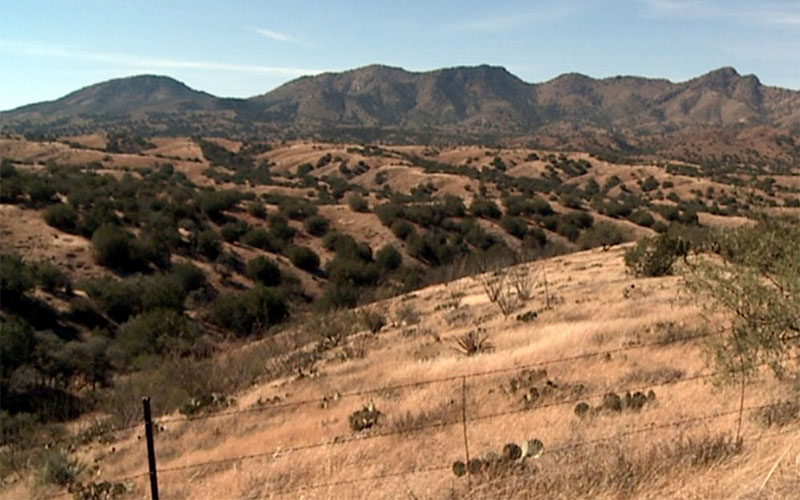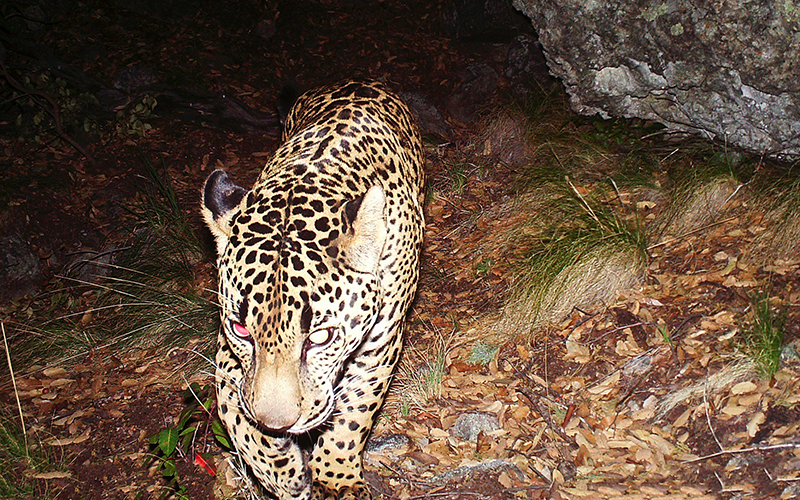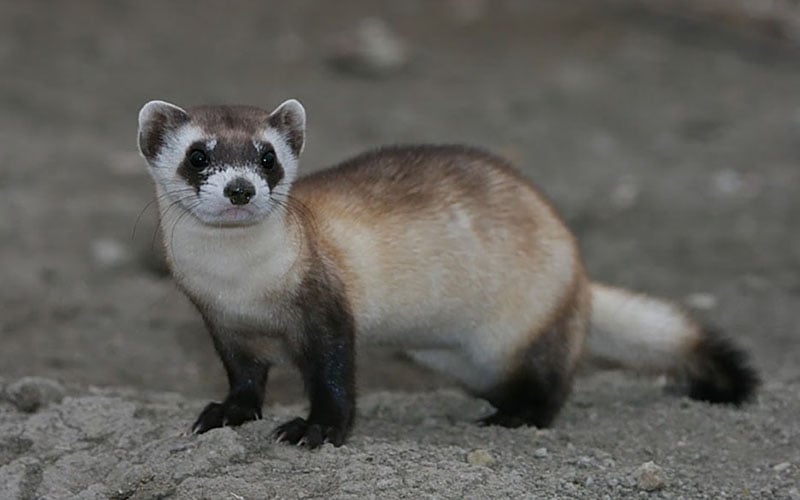WASHINGTON – Federal regulators on Friday rejected a mining company’s request to reduce critical habitat for endangered jaguars in the Santa Rita Mountains on land that overlaps the footprint of the proposed Rosemont Copper Mine.
The decision by the U.S. Fish and Wildlife Service is the latest setback for Hudbay Minerals Inc., which has been working for more than a decade to get permission to open the mine that it says could create thousands of jobs and bring billions in economic development to the region.
But opponents welcomed the decision, saying the mine threatens not just the jaguar but the area’s drinking water supply.
“The people of Tucson have shown very clearly that they value jaguars and their water security more than they value this foreign company coming in here to put an open-pit copper mine in our mountains,” said Randy Serraglio, the Southwest conservation advocate at the Center for Biological Diversity.
In an emailed statement Friday, a Hudbay representative said the Canadian-based mining company is reviewing the Fish and Wildlife decision, but that it “remains committed to the development of the Rosemont Project.”

The Santa Rita Mountains are part of the jaguar’s range in the U.S. – and also the planned site of the Rosemont Copper Mine. (Photo by Rob Scott/Cronkite News)
Hudbay claims that the mine would lead to the creation of 500 jobs directly related to the project and another 2,700 indirectly related, spinning off $48 million a year in state and local taxes and generating $1.4 billion a year in economic activity for the region.
The company also claims on its website that the proposed Rosemont mine has been the subject of more than 1,000 studies by 17 federal, state and local agencies over 11 years, and insists it will operate an “unprecedented environmental mitigation program” at the site.
But Hudbay argued that the government did not need to set aside all of the 764,207 acres that have been identified as critical jaguar habitat in Pima, Cochise and Santa Cruz counties in Arizona and Hidalgo County in New Mexico.
It petitioned the Fish and Wildlife Service to remove the designation from 50,000 acres in the northern Santa Rita Mountains and adjacent areas, which include the site of the planned mine. There was no evidence that jaguars inhabited the target areas, which were not needed for the animals to come and go from their range in Mexico, it argued.
That argument was rejected Friday by the government. It said the company had failed to show that the 50,000 acres were not needed to protect endangered jaguars, once thought to have disappeared from the United States, or that the land was not needed to protect jaguar travel.
“Removal of the northern Santa Rita Mountains would withdraw areas that currently provide the physical and biological features of jaguar critical habitat, and in which confirmed jaguar detections occurred in 2012 and 2015,” the decision said.
It added that the company’s proposal would have “eliminated half of the available connections to Mexico” without explaining in its application why that land was no longer necessary to the species’ survival.
“(The) Fish and Wildlife Service correctly concluded that there was no substantial scientific information submitted to justify such a revision,” Serraglio said.
He said the endangered jaguar is not the only thing threatened by the mine, calling the project a “major contamination threat because they want to put these huge tailings piles, they want to dump all their toxic waste at the top of the watershed.”
“That then recharges Tucson’s aquifers, which is a very foolish thing in these days of droughts being declared on the Colorado River, and water shortages all over the place,” he said.
The company claims on its website that it will treat all its water on-site and that modern mining methods will allow it to use half the water of other operations. It said it has also stored 45,000 acre feet of water ahead of operations.
Serraglio said that multiple companies have attempted to mine in the area, but have not been able to do so successfully. And he said opponents of Rosemont, including his organization, are “committed to preventing them from destroying the Santa Rita Mountains.”


